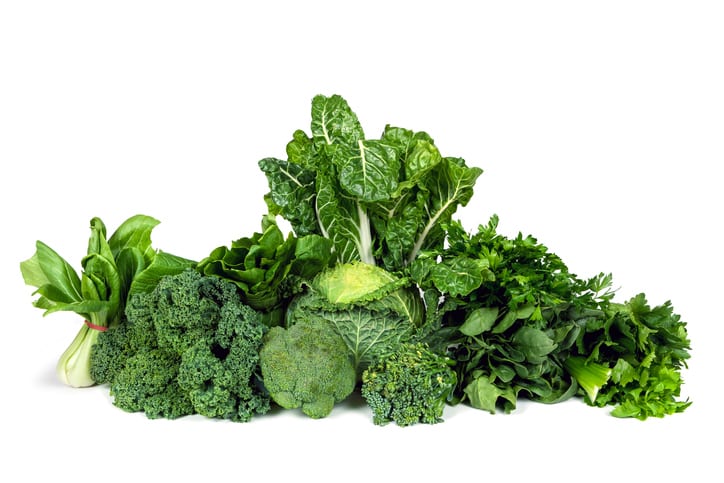- Dark leafy greens such as spinach and kale
Both greens are loaded with lutein and zeaxanthin which are great for your eye health. Plus, the antioxidants lower the risk of developing macular degeneration and cataracts.
Collard greens, broccoli, peas, avocados, brussel sprouts, and swiss chard are additional foods that are rich in nutrients and also good for your eye health.
- Eggs
There are several nutrients found in eggs that promote your eye health; Vitamin A, lutein, zeaxanthin and zinc.
Note that once you heat egg yolks the lutein and zeaxanthin become damaged so cook your eggs as little as possible. The same is true for spinach, so try to incorporate it raw versus sautéed or cooked.
- Deep Orange Vegetables
Orange pepper has the highest amount of zeaxanthin out of 33 fruits and vegetables tested in a study done by the British Journal of Ophthalmology.
Carrots, pumpkin, sweet potato are also excellent sources of vitamins A and C, which are known to prevent night blindness, and carotenoids, which are thought to decrease the risk of many eye diseases.
- Wild-caught Alaskan salmon
Salmon is rich in omega-3 fat. The omega-3 fat is concentrated in your eye’s retina and provides structural support to cell membranes that boost eye health and protect retinal function.
Sardines, anchovies, herring, flounder, mackerel, trout, halibut and tuna are other good sources of animal based omega-3 fat that help protect your eyes. If you don’t eat seafood you can get a good supply of omega-3s with fish oil supplements, black currant seed oil or flaxseed oil.
- Citrus and Berries
Oranges, grapefruits, lemons, papayas, and all berries are high in vitamin C, a top antioxidant, which helps reduce your risk of developing cataracts and macular degeneration.
- Nuts
Almonds, pecans, walnuts, pistachios are full of omega-3 fat and vitamin E that work together to keep your healthy tissue strong.
Sunflower seeds and wheat germ are other great sources of vitamin E.



